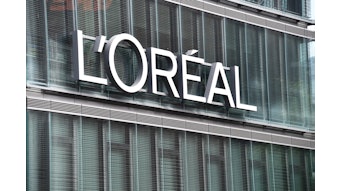
Evidence suggests that because there are no alternatives, millennials and Gen Z are buying from companies they don’t deem ethical despite their social awareness, which is defined as “clothespin shopping,” according to a report by Claudia Dimuro, which leverages data from The Tylt and third-party sources.
Related: 2020 Millennial Shopping Habits
Key takeaways
- Ethics of Gen Z and millennials don’t match with brands: 82% consider themselves socially aware, yet struggle to name a brand they believe is ethical.
- Influencers aren’t as influential as they seem: 57% of Tylt voters feel they are blatantly misleading.
- Despite their ability and enthusiasm to shop at independent stores, big name brands still hold a lot of influence: more than 55% of younger generations expressed the desire to wear name brands.
- Gen Z and millennials aren’t as thrifty as is assumed: 67% of respondents aged 18 to 34 would pay more based on higher quality and brand loyalty.
Related: Ethical Beauty That Stands Out
Clothespin shopping
Younger generations participate in clothespin shopping because of convenience and low prices, but because brands don’t line up with millennial and Gen Z’s opinions of corporations, much of Tylt’s data illuminates their desires to give their loyalty to brands that check the right boxes.
Gen Z and millennials express the desire to live by a variety of ethics, and of the more prevalent core values, respect for the environment is high on the list. Responses to Tylt’s questions skewed inherently green:
- Out of over 4,126 people, 89.6% voted in favor of forgoing the use of plastic bags entirely.
- Out of more than 4,233 people, 56.1% stated they prefer sustainable clothes over fast fashion.
- An overwhelming 92.5% stated they’d be willing to go out of their way to stay eco-friendly.
- An additional 78.9% believe a zero-waste lifestyle is completely possible.
In correlation of the green values, there is an emerging vegan-clothing industry, where brands—like Soulshine and Brave GentleMan—are finding a market by producing eco-friendly designs. According to Grand View Research, by 2025, the vegan leather market is projected to reach $85 billion worldwide.
The dream brands Gen Z and millennials are in search of must be socially aware, create quality products and listen to what they have to say. Brands that effectively check all three boxes will develop an actively loyal customer base—as long as the brands remain transparent and true.
“Millions of millennials and Gen Z are taking to the streets to demand climate action,” Nicole Robertson, founder and CEO of online retailer Swap Society, said. “And as awareness grows about the human rights abuses and the environmental pollution caused by the apparel industry, they are looking for ways to align their values with their consumption habits.”
“I’ve seen some estimates that Gen Z had purchase power of $148 billion in 2019,” Jason Parkin, former art director at Condé Nast and founder of Compose[d] Creative, said. “That’s only going to continue to grow, and they’re going to continue to vote with their wallets. I genuinely believe brands that don’t make the move [to be more purpose driven] are going to be like the brands that didn’t embrace digital—four to five years from now, they’ll be scrambling to catch up, or will go under.”
Political values
In a similar vein, an article on Harvard Business Review explored the ways a company’s political advocacy can affect consumer behavior.
The article revealed political advocacy has become somewhat of a natural extension of the business model and that it is a way for companies to connect with consumers, as well as promote their brand.
Through conducting a survey—in which 34% of participants identified as Democratic, 50% as Independent and 16% as Republican—overarching data revealed a company that engaged in conservative or liberal political activity did not affect Republicans’ opinions, but affected Democrats’ opinions, particularly when the company engaged in a conservative agenda.
The survey also discovered that women responded more negatively to companies engaging in political activity than men.










